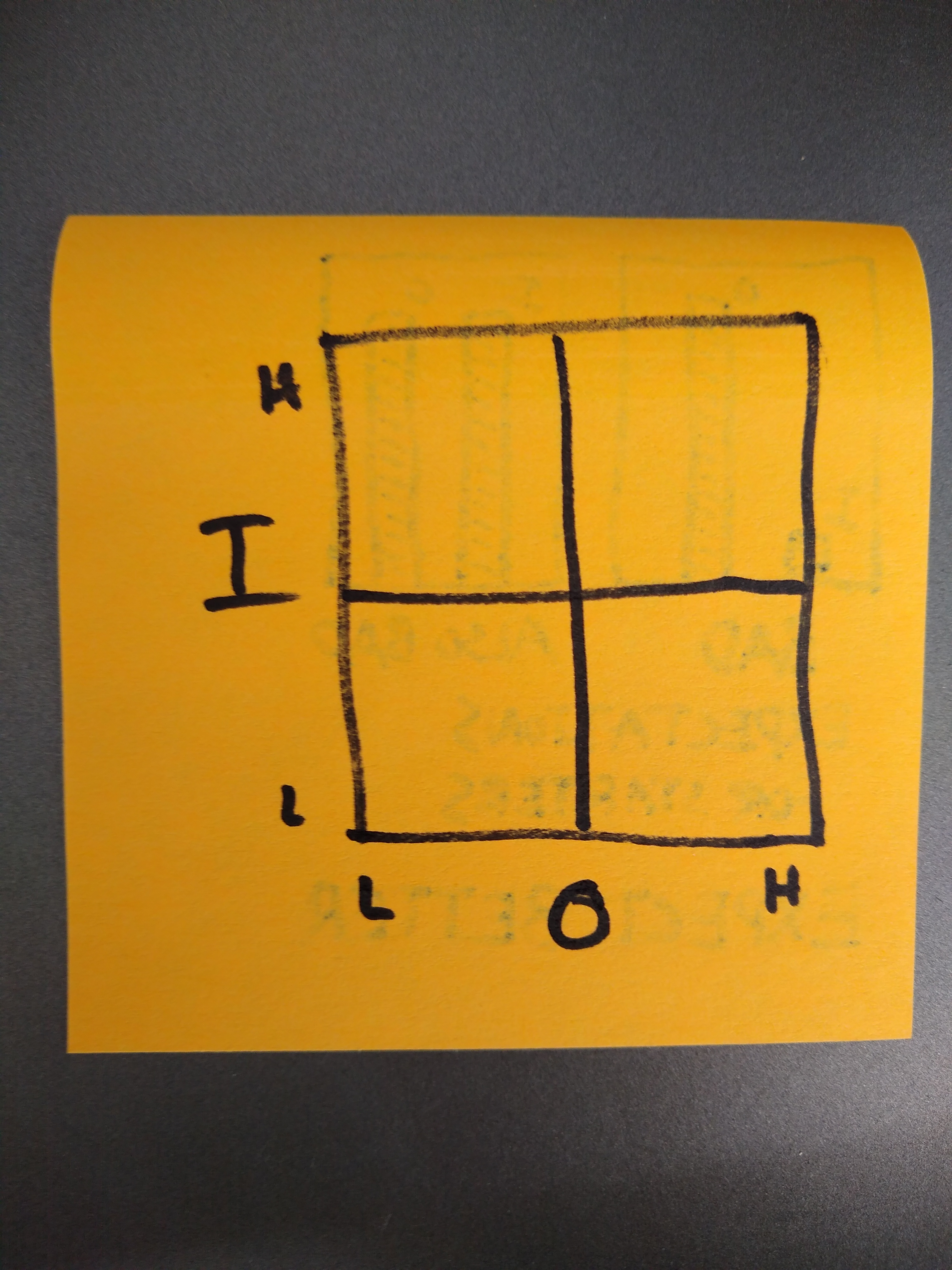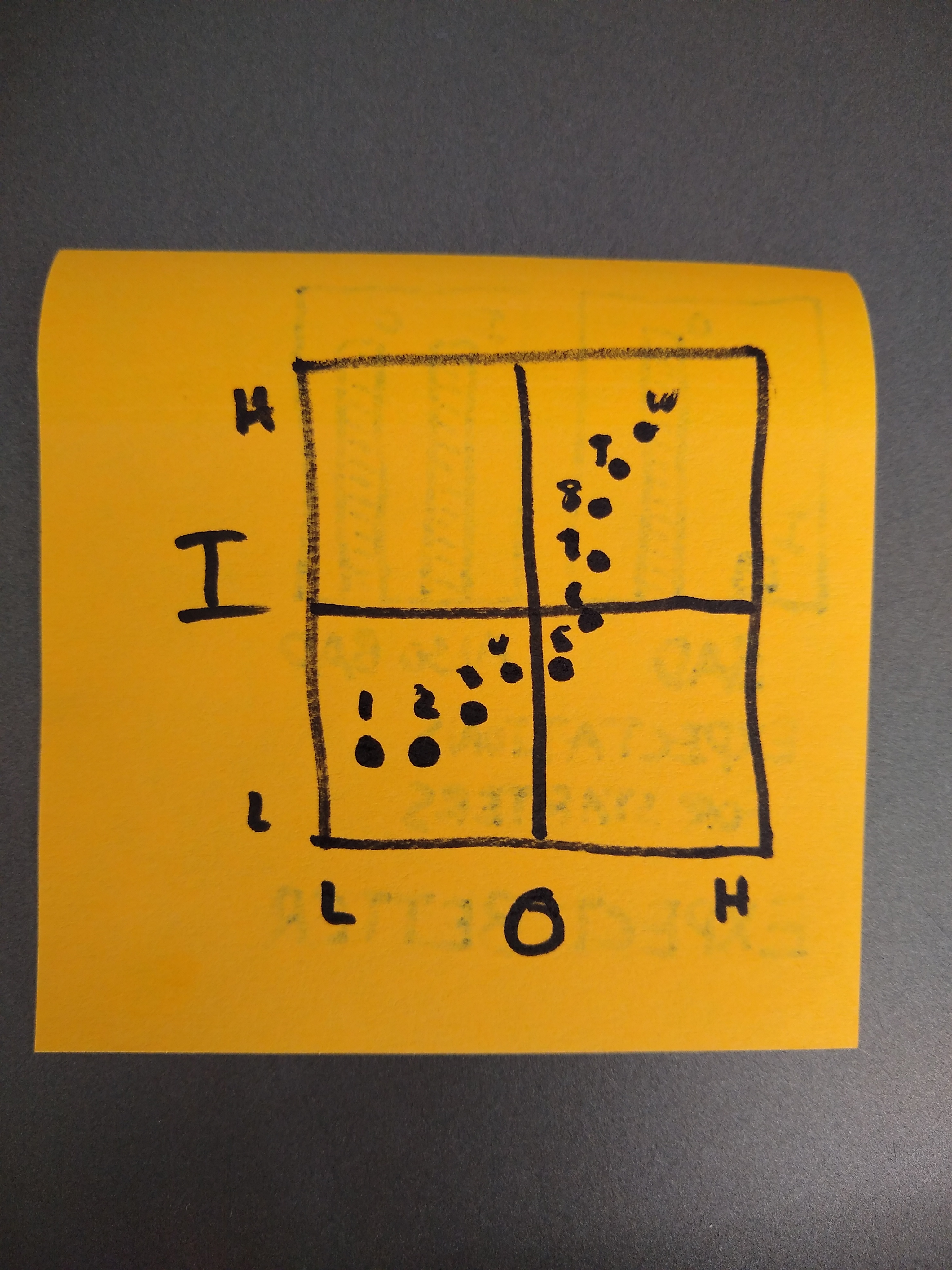Bad expectations, for starters
My goal this week is to simultaneously lower expectations of outcomes and raise standards of inputs.
Think of inputs and outputs as a 2x2 grid, like this:

Inputs can be high or low, and outputs can be high or low.
Inputs could be time and effort working out, outputs could be an improved mood and a reduced waistline.
Or inputs could be tasks completed and outputs could be fewer tasks waiting.
Or inputs could be social or fictitious media consumption and outputs could be apathy, loneliness, and anxiety.
Or inputs could be blog posts published and outputs could be people who wish I published more blog posts.
Hopefully you get the idea. No matter the subject, it’s all just diet (inputs) and exercise (outputs).
Now, a smart person would look for activities that fall in the bottom right square. Lowest effort, highest benefit. Maximum leverage, right?
It rarely works though.
Something a smart person would quickly realize and seek to understand.
For the rest of us, we have to think our way through the problem.
Here’s what I’ve got so far.
When seeking high leverage activities, my inputs become variables to minimize. (Hopefully I’m the only one.)
And then outputs become results to maximize. (Dream big!)
Dopamine hits, motivation spikes, FOMO, peer pressure, job continuity, maybe a combo.
Anyway, the result is that now I’m thinking about getting the most from doing the least, which is obviously wrong and super problematic.
(Advertisers and salespeople are partly to blame. The entire industry is about maximizing perceptions of benefit and minimizing awareness of costs. Big topic, different subject. Maybe I should get out of marketing.)
Is doing the most work for the least fruit better! No. Pretty sure that’s a no. As with politics, the best path is probably somewhere between the extremes, and both sides are probably big distortions of small truths.
Alright, so it’s bad have low standards and high expectations (aka “acting entitled”), but it’s also bad to have high standards with low expectations (poverty mentality, not to be confused with actual poverty).
In the words of Miles McPherson, there’s a third option.
Learn.
Instead of thinking do less get more or do more get less or do more get more, just look for ways to improve.
Do better because you want to learn and grow. Expect better as a sign of learning and growing, and nothing more. Sometimes learning looks like falling. Sometimes learning looks like failure. Not cool if you’re focusing on performance.
Also, unlike for performance, reflection is mandatory for improvement. Teaching reflection may be the best aspect of learning.
Reflection is the only way to look for patterns and see the improvement (and dips). It also highlights moments for gratitude, repentance, and forgiveness. Which is partly why reflection goes so well with prayer.
It’s like a trail of lanterns lighting a path through the complexity of interconnected commerce and distributed electronic cities.
Doing, reflecting, learning, seeing growth.
Like little dots on an orange sticky note:

So that’s my goal for this week.
Just learn.
What’s yours?